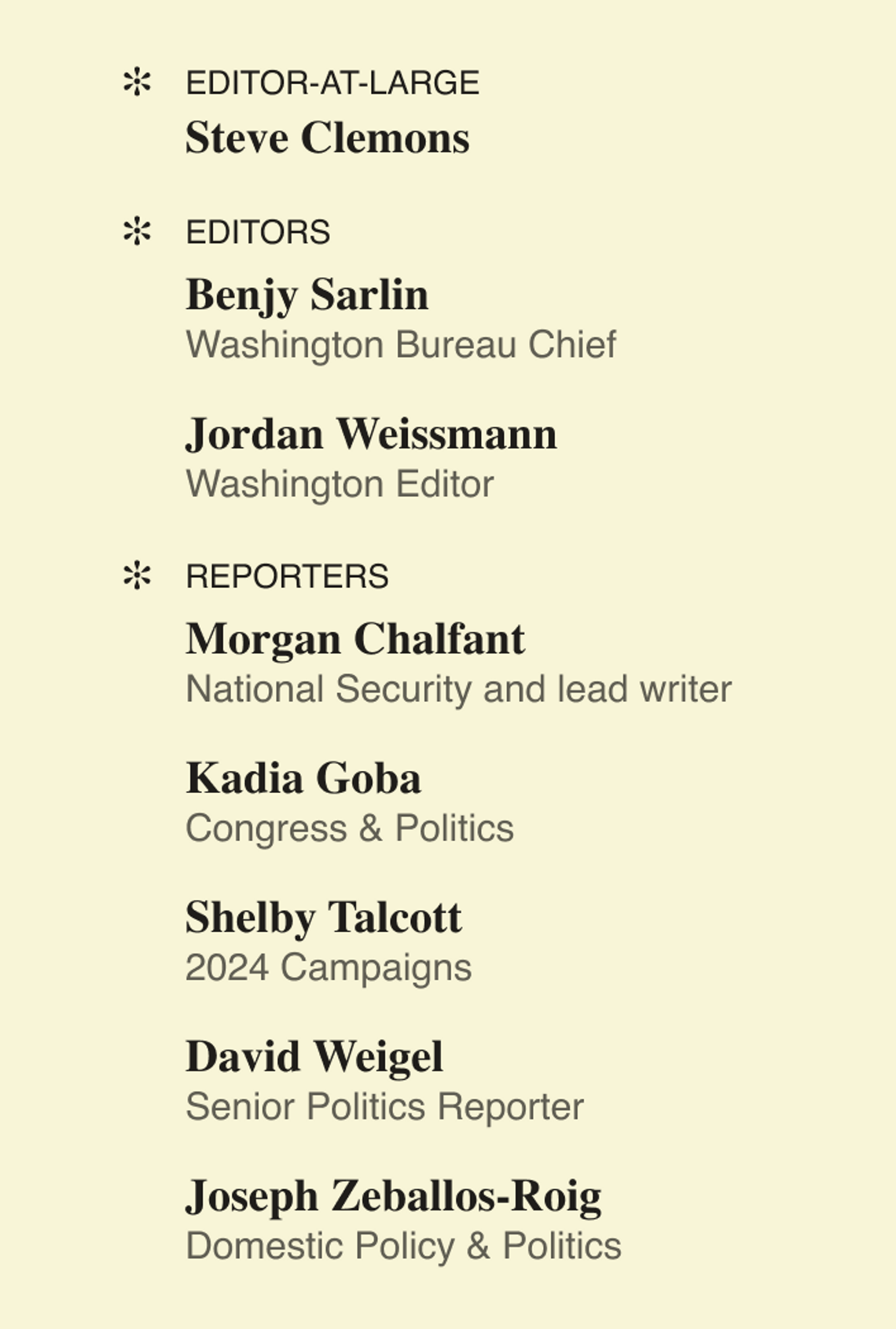 REUTERS/Jonathan Ernst REUTERS/Jonathan ErnstTHE NEWS Two willing leaders in Seoul and Tokyo, a private push from President Joe Biden, and an encroaching China. That’s what it took to get Japan and South Korea to meet for today’s first-of-its-kind summit with Biden at Camp David, a significant step to mend the two nations’ historically fraught relationship. Friday’s trilateral meeting represents a detente years in the making, ushered in by an Yoon Suk-yeol administration in South Korea eager to repair ties despite domestic political pressures and a receptive Fumio Kishida in Japan. Secretary of State Antony Blinken called it the start of a “new era.” But U.S. attempts to strengthen its position against China in the region remain fraught: As of last night, the parties were still negotiating over whether official summit documents would even mention China, Japan’s Foreign Ministry press secretary Hikariko Ono told a small group of reporters at a briefing Thursday evening in Washington. KNOW MORE The countries are drawing closer together in order to counter China’s growing influence and an increasingly aggressive North Korea, which has test-fired scores of missiles since last year. At Camp David, they are expected to sign an agreement setting up a security hotline, commit to consulting each other in the event of a security crisis, and agree to hold three-way summits annually, according to senior Biden administration officials. “The most important factor spurring the progress is the change in government in South Korea and the combined security threats,” said Lisa Curtis, director of the Center for a New American Security’s Indo-Pacific Security Program. Biden helped lay the groundwork for the summit, his first at Camp David. One senior administration official pointed to last November’s meetings in Phnom Penh, Cambodia, saying Biden gave Yoon and Kishida assurances of U.S. support even when there was “discouragement and questions about what was going to be possible” given domestic political forces in both countries. “His ability to basically sit down and encourage and apply what I would call a kind of ‘strategic empathy’ made a big difference,” the official said. A spokesman for the Chinese embassy, Liu Pengyu, referred to the summit as an “exclusionary grouping” and warned that it could “intensify antagonism.” Though the meeting itself is a significant breakthrough, but it will have to weather tough domestic politics in both Asian countries — not to mention potential shifts in U.S. politics. Yoon faced blowback from his political opposition for a recent speech on South Korea’s Liberation Day, which officially marks the end of Japan’s colonial rule, in which he argued for tighter security cooperation with Tokyo and didn’t bring up past grievances, for instance. Seoul and Tokyo have historically bitter relations, thanks to Japan’s brutal occupation of Korea in the first half of the 20th century. Tensions mounted after a 2018 ruling in South Korea calling on Japanese companies to compensate victims of forced labor. But Yoon has sought to end a dispute over forced labor payments, and he and Kishida and the two have made dueling trips to each others’ countries for bilateral meetings in recent months. — Morgan Chalfant To share this story, click here. | 









